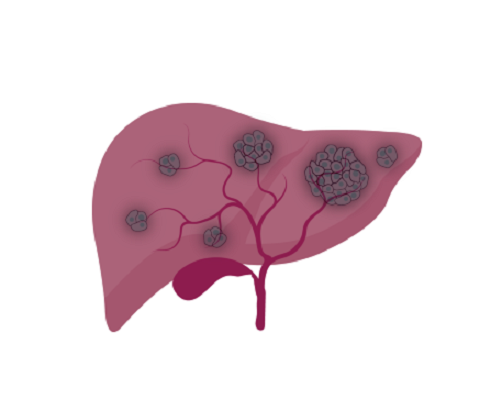Introduction
Usually when there's cancer in the liver, it originated outside of the liver and spread to it. The two main types of liver cancer are primary liver cancer (forms in liver, most common is hepatocellular carcinoma) and secondary liver cancer (from other parts of the body). Some of the risk factors of primary liver cancer are from disease, inheriting it, exposure to mold, and drinking (more detailed).
Mechanisms and genetic alterations
The most common mutated genes for liver hepatocellular carcinoma are TP53, CTNNB1, ARID1A, AXIN1, ARID2.
Current liver cancer treatments
If the cancer is very confined and is discovered very early, then surgery may be able to get rid of the cancer completely, but this is quite rare. A liver transplant can also be used if the patient isn't very healthy or the tumor is very difficult to remove. If the tumor has grown too big or the cancer has spread throughout the liver, then the tumor may be destroyed by ablation, blocking off an artery to kill off the tumor through embolization, targeted drugs, immunotherapy, chemo, or radiation therapy. The focus with these treatments is mostly to limit the growth of the cancer, not to cure it. If the cancer has spread outside of the liver to other organs, then immunotherapy with varius targeted drugs may be used. Radiation can also be used here to help lessen the effects of liver cancer on the patient.
New treatments in clinical trials

